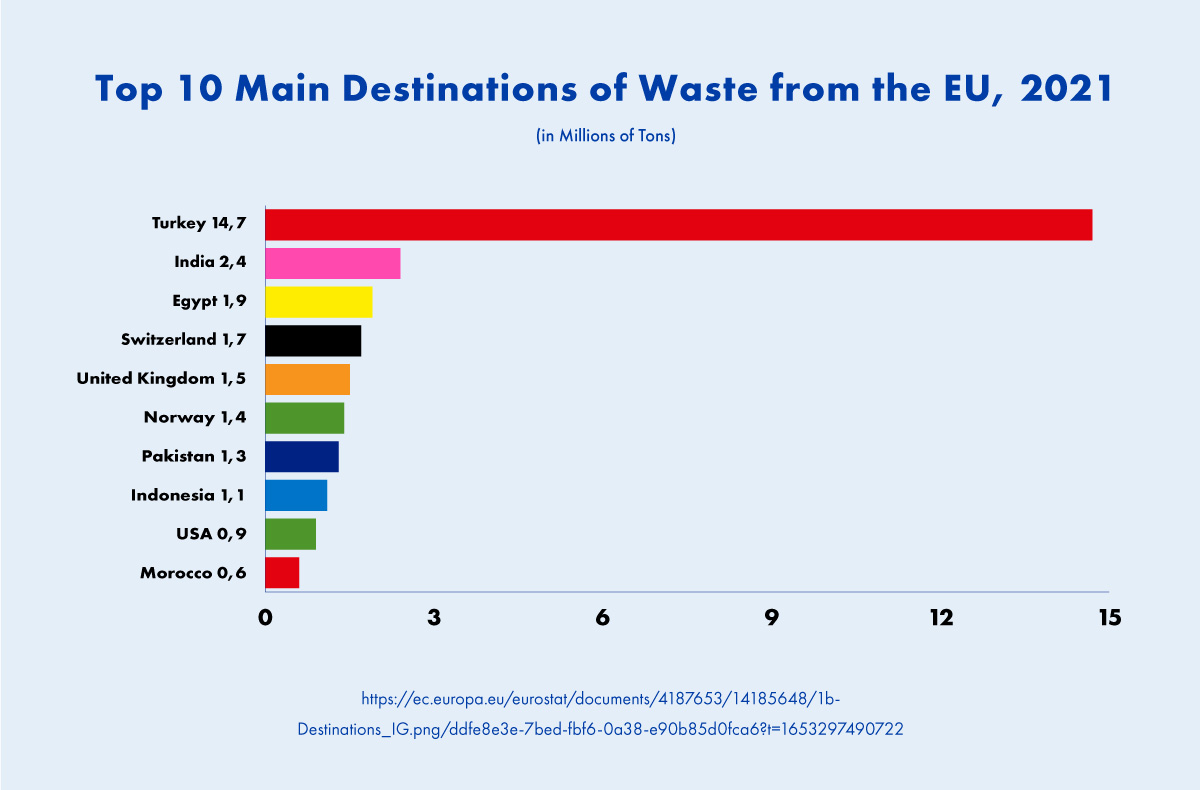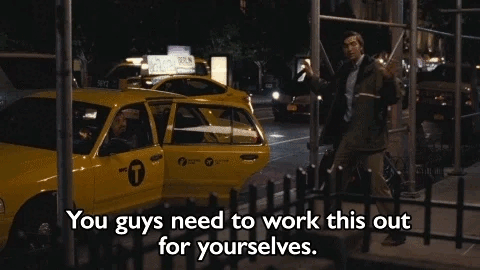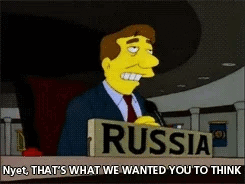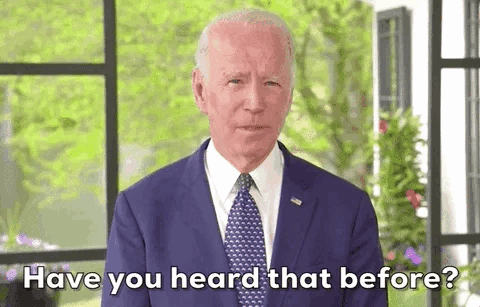Issue #88
Guten Morgen!
This week’s edition of Krautshell is a special one, as we feature an interview with Member of the German Bundestag Knut Abraham (CDU). As a member of both the Foreign Affairs-, and Human Rights and Humanitarian Aid Committees, and as a former diplomat, Mr. Abraham is particularly tuned into current geopolitical affairs. What’s more, take a look at the articles below to find out about the EU’s AI woes, Markus Söder’s popularity roller coaster, and the Ukrainian Ambassador to Germany’s undiplomatic antics. Finally, check out Christian’s WOOM to discover some parallels between the ongoing war and other conflicts. Happy reading and happy weekend!


Anna Christian
FIRST, SOME SOLID INTEL:
AI in the EU: Gold Standards for the Birds
Last week, Mats outlined the EU’s struggles to stay relevant in various high-tech industries. Now we’ve come across a report from the Think Tank Stiftung Neue Verantwortung (SNV, ‘New Responsibility Foundation’) which outlines the same challenge, specifically regarding artificial intelligence (AI). At a closer look, it becomes very clear where (according to these experts) the EU is going wrong in its approach to establish itself as a major global player in the field.
First, let’s look at the EU’s AI -approach. As made clear by recent reporting on the AI Act, the Commission focuses on the rules surrounding AI. The EU mainly wants to answer questions like, “When is it ethical to use AI?”, “How do we deal with the safety risks associated with automated processes?”, and “How do we solve questions of liability?”. By answering these questions, the EU hopes to become the “global gold standard” of AI rules in the world. For the sake of fairness, we should say that the EU plans to invest around 1 billion euros per year into “AI” (no specifics). How that money is spent, however, rather than the amount, will be the decisive factor in determining the EU’s future role in the AI sector.
To become a major global player, you need to control the components of AI: algorithms, hardware, and data. Where are the patents for these technologies? In the US and Asia. Even if cutting-edge AI applications are developed in the EU, they will still be running on foreign servers, using foreign software (key word: dependency). Therefore, the authors of the SNV paper call for the EU to review the AI supply chain and figure out where it can strategically outcompete US- and Asia-based players. That’s where the EU’s strategic investments would really make a difference. If we’ve piqued your interest, feel free to ping us for more.
Back To Bavaria
On May 9th, a day after the CDU’s big election success in Schleswig-Holstein, while the party was celebrating their candidate Daniel Günther, Markus Söder of the sister-party CSU posted a picture with three dogs. Only a few months ago, Söder was the “Union’s” (the cooperation between CDU and CSU) top star. Back then, the majority of voters preferred him as Chancellor-candidate over Armin Laschet (CDU), but now it’s relatively quiet around Söder. And silence is deafening for a stage hog like Markus Söder. What happened?
Söder’s popularity has decreased heavily. He blames Corona for that, arguing that to be popular in Bavaria you need the Bierzelt (transl. beer tent) instead of the Zoom meeting. But this is only partly true. Söder tried everything to become popular: he leaned right when the refugee crisis came (not a success). He started hugging trees and identified sustainability as a Christian value when the Greens became popular (medium success). And in Corona policy he switched from caution to experimentation and back. In short, he was and is “Söder, the Changeable”. The result: many people seem to distrust him. So, it’s time for the strategy everyone does when nothing works anymore: back to the roots. After his short aspirations for becoming Chancellor, it’s back to “Bavaria Only”. But things could be better. The new and already ex-General Secretary of the CSU, nominated and supported by Söder, was sacked after a few weeks in office when he was dumb enough to get caught threatening to “destroy” a journalist after je issued a story about his family.
But Söder wouldn’t be Söder if he wasn’t seeing anything positive in all that. Lately, a survey showed that all four conceivable Chancellor-candidates of the Union in 3.5 years would lose a direct vote against Chancellor Scholz (SPD), Söder included. But the survey showed as well that Söder was still more popular than CDU leader Friedrich Merz. Söder: retweet.
Ambassador on the Loose
If diplomacy is about restraint of power, as Kissinger famously wrote, the message clearly hasn’t gotten through to Ukraine’s ambassador to Germany. Since the invasion of his country back in February, Andriy Melnyk has given Berlin policymakers a run for their money (literally) in talk shows, public events and countless op-eds aimed at Germany’s perceived duplicity and reluctance to aid Ukraine. As the sheer volume of accusations would lead to trouble with our editors, here’s a quick taste of Melnyk’s diplomatic diatribes: “treachery”, “miserable loser” (to a general), “a**hole” (to a member of parliament) and – our favorite – “sulky liverwurst” (to Chancellor Scholz). Now, any of these words would have meant trouble for any other ambassador, but Melnyk isn’t any other ambassador. As the representative of a country struggling for survival against Putin’s armies, he gets away with blatantly undiplomatic behavior, and shapes the public discourse in the process. Call it ‘battering ram diplomacy’.
Unsurprisingly, Melnyk is deeply controversial. As his vocal demands for political, economic, and military support for Ukraine have heated up in recent weeks, politicians from far-left to far-right have taken issue with the acerbic ambassador. Prominent Left MP Sevim Dağdelen has touched on a particular soft spot – the ubiquitous Nazi-Keule (‘Nazi cudgel’): Not only has Melnyk expressed vocal support for the arguably neo-nazi ‘Azov Battalion’, but he visited the Munich grave of WWII-era Ukrainian nationalist leader and Nazi collaborator Stepan Bandera, calling him a “hero”. The far-right AfD has attacked him too, oddly for the same reason. With both fringes up in arms, then, common sense would dictate that Melnyk has something going for him, and he certainly seems dedicated to his country’s cause. But when he states that “All Russians are our enemies”, warning signs should go up in a country that knows better than most what happens when humans are targeted for their ethnicity or nationality.
TAKE A BREAK, GIVE YOUR EYES A REST.

Source: Eurostat
THE HOUSE’S VIEW:
with Knut Abraham, MdB
It’s our great pleasure to be joined this week by Knut Abraham (CDU), Member of Parliament for southern Brandenburg and a member of both the Foreign Affairs Committee and the Committee on Human Rights and Humanitarian Aid. Before entering politics, Knut Abraham had a distinguished career as a diplomat in the German Foreign Office. He sat down with Christian to talk about the war in Ukraine, international institutions – and beer.
Krautshell
First off, regarding the current situation: You are not only a member of the Bundestag’s Foreign Affairs Committee but also of the Committee on Human Rights and Humanitarian Aid. The world has had shocking insights into the crimes of the Russian army in Bucha, a suburb of Kiev, which are probably in violation of international and human rights law. To what extent are you dealing with these issues in the committee as well? Are you able to work at all with the information from the war zone now, or is it difficult to gain clear insights?
Knut Abraham
What we are currently seeing every day in Ukraine is simply terrible, senseless, and almost unimaginable. Thanks to the courageous work of numerous institutions and journalists on the ground, but also the Ukrainians themselves, we are very close to what is happening. The visit of our chairman Friedrich Merz to Kiev has also kept many channels of conversation and information open. The war is not only occupying the Foreign Affairs Committee and the Defense Committee here but has an impact in all other areas. We feel this most strongly in the energy and food sectors.
Krautshell
What could a peace scenario look like?
Knut Abraham
I fear that we will not see a realistic peace scenario until the Russian aggressor is left with no military options. For this reason, it is important – also for the effect on Moscow – that we as Germany are a reliable partner for Ukraine.
Krautshell
The USA has never wanted an overly strong EU and the trend has in fact been back to national inefficiencies. How do we solve the dilemma of dependency on the USA and the resulting nation-state particularism, which only serves Putin and other nationalists?
Knut Abraham
Here it is almost ironic that Putin’s war is bringing together the EU in particular, but also the democratic community of states all over the world. What the war also painfully demonstrates is that overly one-sided dependencies need to be thoroughly scrutinized. In all areas. This calls for a strong EU and is something that national parliaments can only do to a limited extent in the global context.
Krautshell
You were a diplomat, consul general in Washington, second-in-command in Warsaw, and now in the Bundestag. What is the big difference in your perception between a state representative (diplomat) and a citizen representative (MP)?
Knut Abraham
The difference is already enormous. On the one hand, I am much freer as a politician than in my role as a diplomat. I can speak much more directly. As a politician, however, you’re always under the magnifying glass for all the issues and concerns that come up. It’s also important to translate the work in Berlin to what moves people in the constituency. Of course, that also makes the job very appealing and varied.
Krautshell
Can we have a little anecdote about the current situation, about how you could use your diplomatic network?
Knut Abraham
To be honest, it helps a lot to know how a ministry works. Because with this knowledge, I can now, as a parliamentarian, ask very precise follow-up questions about the work of the federal government and picture my very esteemed colleagues in the Foreign Ministry fine-tuning the answers.
Krautshell
Diplomat is a good job. What made you switch to the political arena?
Knut Abraham
Politics and diplomacy are two sides of the same coin. My medal is called foreign policy. As a diplomat, I worked on it with the tools of the administration; now, as a politician, I work on it with the tools of parliament. What attracted me to the change was the opportunity to formulate much more directly, much more clearly and much more loudly what I really wanted to achieve for my country and for Europe. The diplomatic methods were too quiet for me. Especially in these dramatic times.
Krautshell
Are there certain skills you develop as a diplomat that are particularly useful in politics?
Knut Abraham
A key element in politics is organizing majorities for ideas and positions. My diplomatic experience helps me here. It’s also very helpful to have ready access to a network as a newcomer to the Bundestag. That made it easier for me to familiarize myself with the complex field surrounding the Foreign Affairs Committee and the Committee for Human Rights and Humanitarian Aid.
Krautshell
Again as a diplomat: Our readers are sitting in the US spinning industrial wheels and looking especially at regulatory issues. From our political-insider point of view, the US always seems to vacillate between complete domination over us, as in NATO and parts of the technology sector, and polite eye-to-eye with Germany, as in data protection, market access, financial policy. How do you currently experience the role of the US in Berlin?
Knut Abraham
With no other region of the world do we have so much in common, so many shared fundamental values and convictions, as with the US. We are close partners, especially in security policy. We experience that every day – here in Berlin, but also throughout Europe. And we are grateful for that. But Europe and the USA are also fierce competitors in many areas. That does not preclude close friendship. A fundamental difference, which cannot be emphasized often enough, is the perception of the role of the state in society and the economy. In Europe, people virtually expect the state to play an active role. This is not the case in the US. Quite the opposite, in fact.
Krautshell
Another political joke from your time in the US for our readers please!
Knut Abraham
The differences just mentioned about the role of the state can also be illustrated by the term ‘social market economy’. During a long and boring speech by a German politician in D.C., who emphasized the ‘social market economy’ in every sentence, a prominent US politician leaned towards me and asked, ‘What kind of socialism is he talking about?’ Wonderful!
Krautshell
We are both from a constituency in one of the economically weakest areas of Germany: South Brandenburg. The ‘charm of poverty’ has made Berlin world-famous, how do we get our region Elbe-Elster world-famous?
Knut Abraham
The south of Brandenburg already has a lot to offer. Its location between Dresden and Berlin makes the region increasingly interesting for investors, and the background of structural change following the end of brown coal mining also underscores this. Here we are called upon to seize the opportunities that currently present themselves quickly and unbureaucratically by providing the appropriate infrastructure. We have very good municipal leaders in the town halls and district offices, so I am convinced that through structural transformation we will turn Lusatia into a winning region. I also fight for this in Berlin.
Krautshell
Finally: You are fascinated by the 6,000-year-old history of libations? What exactly sparked your interest in it?
Knut Abraham
I am particularly fond of small village inns and rural breweries. Mostly, these places are like a mirror for the region and make traditions and the feeling of home tangible. Their social significance should also not be underestimated. Since village pubs in particular are a dying breed, protecting them is on my political agenda. For example, I am a member of the parliamentary group for brewing culture.
LONG STORY SHORT:
-
-
- Too Less and Too Late: Ex-Chancellor Gerhard Schröder is finally willing to give up all his mandates in Russian companies. Last week, he announced he will step down from his board position at Rosneft. This week, he let everyone know he will also not join the board of Gazprom again. Whether he follows public pressure or just came to a (very, very) late discernment, we don’t know. However, it’s far too late to save a last bit of his credibility.
- EU Sanctions and Academics: EU sanctions, of course, also concern the academic sector. Many funding programs by universities and other public institutions with Russian scientists and researchers were stopped. Now, first protest comes up, arguing this develops to a cancel culture actually causing the opposite of what we want to achieve with sanctions. Read an interesting report here.
- In Search for Partners: Instead of travelling to Kyiv, Olaf Scholz (SPD) visited three African countries this week. The Chancellor works on his geopolitical strategy. Two of the three countries he visited hadn’t condemned the Russian invasion of Ukraine in the UN. And the Chancellor was busy to tear them to the position of the Western countries. Scholz knows that bigger coalitions against Russia are necessary and tries to establish them. With medium success in South Africa and Senegal.
-
WHAT’S ON OUR MINDS
Mark Twain allegedly said “History doesn’t repeat itself, but it often rhymes.” Indeed, there is a whole poetry book of comparable geopolitical stories of the past and the present that would easily rhyme with the Ukraine situation. For instance, what Russia is doing at the moment rhymes with the threat of re-colonialization like in Africa. One could also say the situation on the Korean peninsula totally rhymes with the a possible end-scenario in Ukraine: a country split in half through a proxy war. Or how about the “punch-line” of geopolitical poetry calling current affairs a “Vietnam” and another “Afghanistan” for Russia in Ukraine. But we need a new poem that resonates with those in the western world – especially in France, Germany and the US – who would rather stay out of this conflict like

But this shilly-shally between full support and total lack of any support for Ukraine is part of the western strategy. “Better shilly-shally than clear cut no support at all!” one could say in view of previous poets of the US-governments: In 2017, during a G7 prep-meeting in Hamburg, Former Secretary of State Rex Tillerson bluntly told his colleague MoFA Sigmar Gabriel that the Ukraine situation could be taken off the agenda, as this was an affair that had nothing to do with Japan and the US.*
Gabriel replied “Are you serious?”, Tillerson came back to him with a wink and said: “I just wanted to signal to you, how President Trump thinks about this.”
Fine, good to know, at least that quote is poetry to the neo-soviets

That short anecdote aside, if we put all the pieces of the current conflict together, a very distinctive geopolitical rhyme seems to appear. Can you guess which one?
Look at it: The back and forth of US/EU support/non-support, the lip-services and agreements, the shifting of borders, a government finding matters agreed upon by the previous administration treasonous.
Look further: Neighbors that want Russia to lose without wanting Ukraine to win, weapons being delivered to a country which are then used in a way not sanctioned by the delivering nation (btw, did you notice that the Bayraktar-drone performance is the one thing Erdogan doesn’t brag about).
More: The over-exposure or blurring of facts, the existential fear, the constant nuclear option on the table, the claim that Ukraine wasn’t a legitimate state and finally the promise to throw the Ukrainians back into the sea oblivion. So?

Ok, I will say it: The war in Ukraine seems to be like an “Israel-Moment” in Europe. The rhyme is definitely there! The EU will have to use this tricky situation to define its borders, secure support for them, and define a strategy for deploying weapons and armies. Also, we ought to follow Gabriel’s advice to discuss ideas, like Macron’s tempting idea of an EU-Security Council including the Brits, and to create solid institutional progress. Sadly, progress of that kind will not be realized with the current (mind)set of German progressives…while geopolitical poetry continues to drop lines as “life will punish those who come late” (Gorbachev).
*Gabriel reported this a few days ago during an interview with the most renowned polit-bubble Podcast in Berlin.

